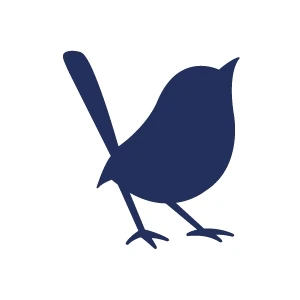CRM stands for Customer Relationship Management and is one of the most widely used and most misunderstood aspects of business.
Ask 10 business professionals for a definition of CRM and you will probably get 10 different answers.
And technology businesses do not help either. They will often use CRM as a catchall to describe their software, despite the fact their product might only deliver a small part of the CRM process.
To give it its full definition: Customer Relationship Management is the the practice of converting each prospect into a customer and then retaining customers by engaging them with personalised service and communication.
In a nutshell, CRM manages the customer journey from start to finish. And the CRM process can be broken down into three key areas:
Marketing Sales Service & deliveryEach element of the CRM process demands specific focus and activity.
Marketing
CRM within the marketing function coordinates, implements and measures the various tactical marketing activities of the business. This is about targeting prospects and implementing campaigns to encourage those prospects to engage.
The range and type of marketing activity will depend on the business, but a structured CRM process will help make it more effective by integrating the different marketing channels and tracking their success.
Some examples of using CRM to improve the marketing process include:
Segmenting prospects into different groups with distinct characteristics with their own set of marketing messages. This segmentation criteria can be used to find new prospects more effectively Automating an email marketing campaign that targets a specific customer segment and then recording relevant statistics such as open rates, click through rates, enquiries. Use this information to improve the effectiveness of the next campaign Automatically connect / follow / engage with prospects on social media as well as target them with online advertising Record the number of different ‘touch points’ for a prospect and trigger actions such as a sales callSales
There is a lot of cross-over between CRM for marketing and sales but in general CRM for sales is the process of converting a lead into a customer. Optimising your sales process to ensure you convert as many qualified leads as possible can have a huge impact on your bottom line.
Some examples of using CRM to improve the sales process include:
Moving potential customers through the sales funnel by structuring a process and workflow to keep up the momentum. An effective CRM process will record all activity, so the business always has full visibility Track conversion rates so the business knows how many leads are required to achieve a sale. Focusing on improving this metric will improve business profitability as well as creating forecasts and pipeline that will support business planning Record and measure customer acquisition to identify the most cost-effective sales activities. Without this information sales teams risk wasting time and energy on channels that they feel most comfortable in and not necessarily the channels that deliver greatest return Streamline the sales process using a prepared library of resources and templates that are consistent across the business and proven to be successfulService & delivery
The CRM process does not end when the prospect is converted into a customer. In fact, it is only just beginning.
Liaising with the customer to deliver the product or service effectively and profitably is essential for any business success; along with providing responsive customer service and personalised communication to deliver satisfaction and build loyalty.
Some examples of using CRM to improve the service and delivery process include:
Managing the entire customer journey to ensure the product or service is delivered efficiently and effectively, especially when the customer is passed along different functions within the business (operations, finance, support etc) Giving management full visibility of the status of each sale/project and the quality of the customer relationship allowing them to make decisions regarding resource allocation and operational focus Recording and tracking customer service and support to optimise response rates and customer satisfaction Build customer loyalty and retention by setting up workflows and reminders prompting the business to keep in touch and personalising their communication messageHow to choose the right CRM software for your business
Now armed with an understanding of the CRM process the next question is whether the business requires new CRM software, and if so, which one?
Sourcing the right CRM software can have a transformative effect on a business, but conversely selecting the wrong CRM software can be expensive and disastrous.
Here is our advice.
Map your processes
Always start with process and not with software. The right software should match your process and improve productivity, you shouldn’t be changing the way you do things in your business just to fit a new software product. All processes should be mapped out and written down in advance; from acquiring a customer through to project delivery and customer support.
If you need more information on how to go about creating a process map, please take a look at our instructional blog on the topic: How to create a simple process map
Define priorities
Create a prioritised list of the things you need to improve in the business and focus on these first. Is it marketing? Is it sales? Is it service? Or is it a combination of the three? Tackling the most important thing first delivers immediate impact, helps you demonstrate value to the rest of the business and gets buy-in from all those involved.
Create a requirements checklist
The requirements will be based on your process maps and your prioritised list. Write out a list of functionality requirements for the software and group into ‘must-haves’ and ‘nice-to-haves’. If you need the software to adapt and extend its functionality as you move down your list of priorities, then make sure you include flexibility as a ‘must-have’ requirement.
Research the market
You can now take a look at what is out there, and you will very soon discover there are a myriad of options. Ask people you trust for recommendations, carry out web-based research and build a long list of possible solutions. A key decision to make early on is whether to choose an off-the-shelf solution or work with a supplier to create something more bespoke. This will largely depend on the ‘uniqueness’ of your processes and the existing software solutions that are already out there.
Evaluate the options with demos and trials
With a short list of 2 or 3 options, the next stage is to trial or receive a demonstration of the software. From this you want to evaluate and select the most suitable option based on your requirements. As well as software functionality there are also other important aspects that many businesses overlook but should consider:
Total cost of ownership: what are all the costs? And how do those costs change as the business grows? Data security and access: where is your data stored and how can you access it if you stop using the software? After sales support: what is the provision for support? Is there a service level agreement? User training: what resources are available to training and upskilling your team? Is it just online resources or do you have access to real people? Delivery schedule: how long will it take to deliver? How will the software provider support the ‘onboarding’ process Development roadmap: will the supplier invest in the software to develop and improve it?Engage with your team
To give your business the best chance of successfully adopting the CRM software, we always recommend engaging with the staff who will be using it at a very early stage in the selection process. This will also help reduce onboarding and user training costs as they will already be familiar with the chosen software solution.
Start simple
Our final piece of advice is to start simple and not attempt to solve every issue from day one. Use your prioritised list to target the most important issues first and then progressively move down the list as you overcome these issues. This way you will keep your staff engaged and onboard and it also gives you the opportunity to adapt and change the software as you start to use it in a real-life scenario.
If executed correctly CRM can transform the productivity and profitability of your business. It has for us.
Good luck.
Learn more
Please get in touch ([email protected]) if you would like to learn more about our software platform that builds bespoke CRM and Workflow Software aligned to the exact requirements of your business.























